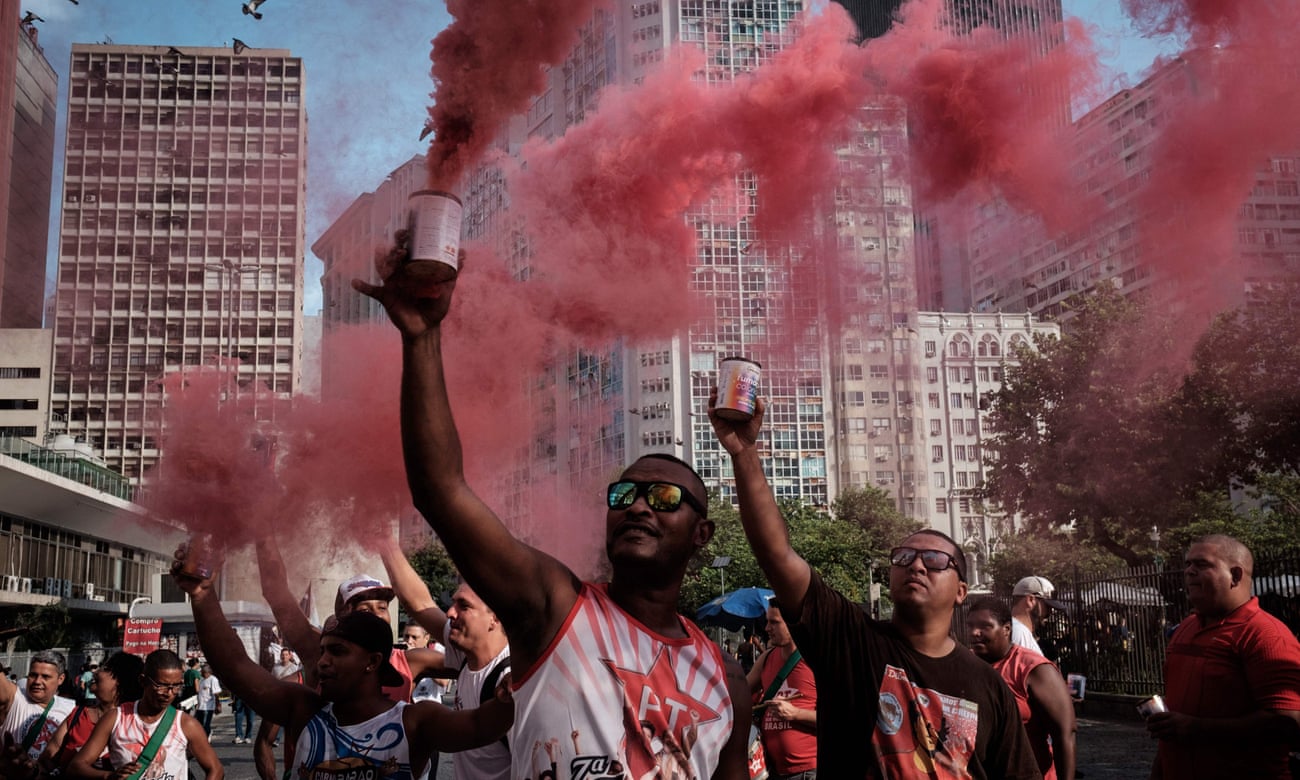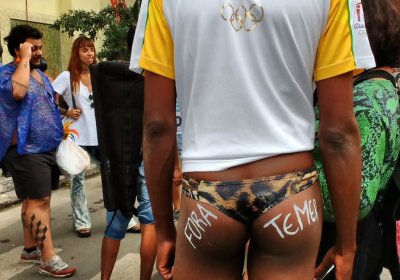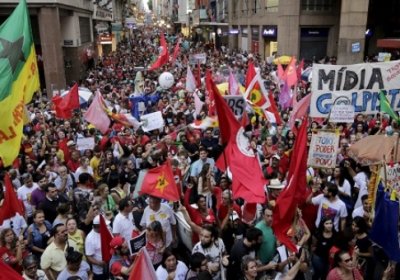Brazil
When the 2016 Olympic Games began on August 5, it was the culmination of a harrowing, exhausting decade-long battle between the people of Brazil and the demands of those utterly unaccountable, scandal-plagued sports bodies, FIFA and the IOC.
Hosting the 2014 World Cup and then the Olympics back to back with one city, Rio, as the epicentre for both events, has never been done in history — let alone in the post-9/11 world. It would be a challenge for any country. Putting these mega-events in Brazil, for those in the West, must seem like madness.
Since the start of the 21st century, the left has won elections in most Latin American countries in a powerful wave of popular rejection of the disastrous neoliberal policies of the previous regimes. One must however distinguish between two quite different sorts of left governments:
 I just returned to the United States from Rio de Janeiro, where I was researching a story on the Olympics in August for The Nation.
People spoke to me about the displacement and police violence that are accompanying the games. Yet one of the hottest points of discussion emerged from outside the country: a call to move, or at least postpone, the Olympics to prevent the global expansion of the Zika virus, currently exploding in Rio.
I just returned to the United States from Rio de Janeiro, where I was researching a story on the Olympics in August for The Nation.
People spoke to me about the displacement and police violence that are accompanying the games. Yet one of the hottest points of discussion emerged from outside the country: a call to move, or at least postpone, the Olympics to prevent the global expansion of the Zika virus, currently exploding in Rio.
 Anti-coup protesters on the streets of Rio de Janeiro in April.
In what has been widely condemned as a US-backed right-wing power grab to impose harsh neoliberal measures, Brazil’s Workers’ Party (PT) President Dilma Rousseff was forced to stand aside by Brazil’s Senate on May 12 while she faces impeachment procedures.
Anti-coup protesters on the streets of Rio de Janeiro in April.
In what has been widely condemned as a US-backed right-wing power grab to impose harsh neoliberal measures, Brazil’s Workers’ Party (PT) President Dilma Rousseff was forced to stand aside by Brazil’s Senate on May 12 while she faces impeachment procedures.
 A community assembly as part of a communal council in Caracas. Photo by Rachael Boothroyd Rojas/Venezuela Analysis.
Leading Marxist author Michael Lebowitz spent six years (2004-2010) in Venezuela working as a director of the program for Transformative Practice and Human Development at the Miranda International Centre (CIM) in Caracas. There, he had the chance to take part in the building of socialism for the 21st century.
A community assembly as part of a communal council in Caracas. Photo by Rachael Boothroyd Rojas/Venezuela Analysis.
Leading Marxist author Michael Lebowitz spent six years (2004-2010) in Venezuela working as a director of the program for Transformative Practice and Human Development at the Miranda International Centre (CIM) in Caracas. There, he had the chance to take part in the building of socialism for the 21st century.
 The overthrow of Brazil’s President Dilma Rousseff in an institutional coup by right-wing forces has been justified by allegations of corruption — even though issue Dilma is being impeached on is use of a relatively normal government spending mechanism.
The overthrow of Brazil’s President Dilma Rousseff in an institutional coup by right-wing forces has been justified by allegations of corruption — even though issue Dilma is being impeached on is use of a relatively normal government spending mechanism.
- Previous page
- Page 11
- Next page







